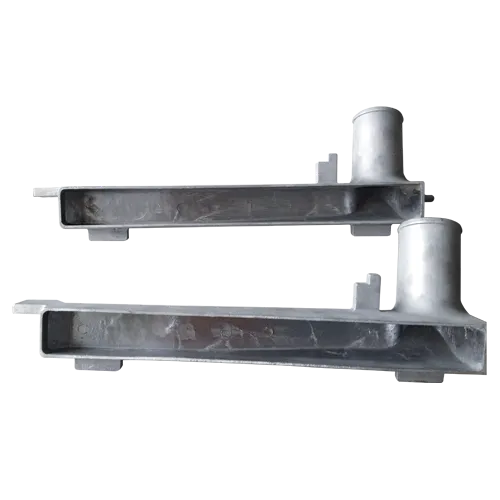Mobile:+86-311-808-126-83
Email:info@ydcastings.com
English
Exploring the Benefits and Applications of Aluminum Alloy Die Casting in Modern Manufacturing Processes
Understanding Aluminum Alloy Die Casting A Comprehensive Overview
Aluminum alloy die casting is a highly efficient manufacturing process that is widely used to create complex and precise components. It involves injecting molten aluminum alloy into a steel mold (die), where it cools and solidifies into a desired shape. This process is highly regarded for its ability to produce intricate designs with excellent dimensional accuracy, making it a preferred choice across various industries, including automotive, aerospace, electronics, and consumer goods.
The Advantages of Aluminum Alloy Die Casting
One of the most significant benefits of aluminum alloy die casting is the lightweight nature of aluminum itself. Aluminum alloys, particularly those used in die casting, offer a favorable strength-to-weight ratio, which leads to lighter components without sacrificing structural integrity. This characteristic is especially advantageous in industries like automotive and aerospace, where reducing weight can enhance fuel efficiency and overall performance.
Moreover, aluminum die casting produces components with superior surface finish and detail, which reduces the need for secondary machining processes. This not only saves time but also minimizes production costs. The manufacturing process is highly repeatable, allowing for high production volumes with consistent quality. This aspect is particularly beneficial for manufacturers looking to meet stringent tolerances and specifications.
Another key advantage is the excellent corrosion resistance of aluminum alloys. This durability makes die-cast components suitable for use in harsh environments, such as marine applications and outdoor equipment. Additionally, aluminum is highly recyclable, making this casting process environmentally friendly, which is increasingly important in today’s manufacturing landscape.
The Process of Aluminum Alloy Die Casting
aluminum alloy die casting

The process of aluminum alloy die casting typically begins with the preparation of the molten aluminum. The aluminum is heated to its melting point—around 660°C (1220°F)—and then transported to the die casting machine. The two main types of die casting processes are hot chamber and cold chamber die casting. In hot chamber die casting, the molten metal is injected directly from a holding furnace, whereas in cold chamber die casting, the molten aluminum is ladled into the chamber prior to injection. The choice of method depends on the specifications of the part being produced and the type of aluminum alloy used.
Once the molten aluminum is injected into the die under high pressure, it fills the mold cavity and takes on its shape. The pressure helps to ensure that even the most complex geometries are filled without voids, which is crucial for the mechanical integrity of the finished product. After a short cooling period, the die is opened, and the cast part is ejected.
Applications of Aluminum Alloy Die Casting
Due to its numerous advantages, aluminum alloy die casting finds applications across a wide range of industries. In the automotive sector, components such as engine blocks, transmission cases, and structural parts benefit from the lightweight and durable nature of aluminum. In the aerospace industry, components like housings and brackets are produced to reduce weight while maintaining strength.
In addition, consumer electronics, such as smartphone casings and laptop housings, often utilize aluminum die casting for both aesthetic and functional purposes. The excellent surface finish and ability to incorporate intricate designs make aluminum die casting an ideal choice for complex electronic components.
Conclusion
Aluminum alloy die casting is a versatile and efficient manufacturing technique that plays a critical role in modern production. Its advantages, including lightweight strength, design flexibility, and excellent surface finish, make it a preferred method for a variety of applications. As technology continues to evolve, the process of die casting is expected to become even more efficient, further enhancing its appeal in various industries while supporting sustainability through recycling and reduced waste. The future of aluminum alloy die casting is bright, promising innovative solutions to meet the demands of an ever-changing market.
-
Efficient Automobile Water Pump: Reliable Cooling for Engine ManifoldsNewsSep.01,2025
-
Premium Fan Housing & Motor Casing for Optimal AirflowNewsAug.31,2025
-
High-Performance Automobile Water Pump & Electric SolutionsNewsAug.30,2025
-
Expert Stainless Steel Casting | Precision & Durable Metal PartsNewsAug.29,2025
-
Precision Metal Castings: Aluminum, Stainless Steel & Die CastingNewsAug.28,2025
-
Superior Aluminum Castings in Automotive Engine PartsNewsAug.22,2025











